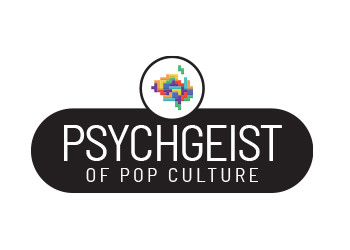
When the Duffer Brothers brought us the delight that was Stranger Things back in 2016, millions of viewers across the world began delving into the fictional, yet highly nostalgic town of Hawkins - set in the apparent perfect suburban world of the 1980s. However, it soon becomes apparent that this location is plagued with supernatural occurrences, government conspiracies, bizarre state experiments and interdimensional travel. It effortlessly draws on the genres of science fiction, horror, and thriller and is in many respects a teenage drama, as the story is told from the perspective of its teenage protagonists. This newfound fandom rapidly emerged audiences across multiple demographics - simultaneously Tik Tok scrollers learnt what D&D was for the first time while their parents got to indulge in the ‘good old days’ of walkie talkies, questionable fashion choices, roller skating and the familiar (if not illusory) homogeneous atomic family of middle America.
Stranger Things contains a myriad of complex themes that are ripe for academic analysis. One of the key cornerstones is its connection and depiction of childhood, and the characters' moral development in the face of constant existential risk. The series interrogates how the tensions/dangers of emerging adulthood can actually foster personal growth. At every plot twist death is juxtaposed with a world of wonder, humour and occasionally heavy metal (RIP Eddy). It also asks the question of how normal individuals cope with traumatic experiences and are able to display resilience in spite of unimagined horror. The writers even explore the public hysteria and moral panics associated with various stigmatised sub-cultures of the time - the show is, in many ways, a reflective mirror of our (at times), problematic society.
Each chapter in this volume will ask if there are any philosophical, sociological or psychological concepts, theories or mechanisms that may be useful or insightful in understanding this superb illustration of our popular culture. Below are some suggested themes to explore, feel free to tweak an existing one or alternatively suggest your own.
. Some core themes to consider (but are not limited to):
Suggested topics:
- The Empathy Gap - a critical comparison of child 1 (Vecna) and child 11(L), and their diverging paths of villainy and heroism
- The destruction of self: The psychological conditioning of Father's 'numbered' children’
- Challenging the trope 'Boy’s toys': The gendered resistance of Erica Sinclair
- Deconstruction of the problematic: Character development of Steve Harrington, from archetypal 'jock' to a case of positive masculinity
- The upside down: An echo of the Jungian collective unconscious
- Joyce: The psychology of grit: The cognitive development of resilience
- Moral schemas: The development of Vecna as a model of ambiguity for good versus evil
- Jim Hopper: Self sacrifice, the mechanisms of altruism and kinship
Currently Confirmed:
- Parental Resilience in the Demogorgon's Shadow: Unveiling Trauma Coping Strategies in Stranger Things (Kim Heyes)
- 'Oh, Karen': The evolution of parenting/communication styles, a call back to latchkey kids (Chloe Stollery)
- The navigation and performance of guilt (Awaiting proper title - Holy Rox)
- “Friends don’t lie”: Friendship, camaraderie and trust formation in life and death situations (Alicia Denby)
- 'Be Kind, Rewind' The misremembering of the past: The psychological bias of nostalgia in pop culture (Saiqa Butt)
- Provisional Curator Question (Anton) - The Prototypical 'Metal Head': A Case Study Analysis of Eddie Munsen
What overarching theories or mechanisms explain the concepts, themes and narratives embedded in the Stranger Things universe? This Psychgeist series welcomes academic perspectives from across the social sciences.
**CLOSED FOR SUBMISSIONS**
- 367 views
